|
The world today is struggling with the concept of compassion and understanding. As an ally, I realize I always walk a fine line between support and knowing my place in the community. As a mother of queer, multi-racial kids, I will never truly understand their challenges. All I can do is be there when they need to vent and do what I can to help and be there for them.
That is all we can do as humans on this earth. But it’s been painful to see how difficult it is for some people to open their minds and hearts just a little. So this year, I would love for us to smile a little more and take time out to be grateful for what we do have. Maybe more of that can overpower the negativity. I hope this year’s issue brings a few smiles as P&E celebrates 20 years in the community! We’re excited to have Dana Tai Soon Burgess as the cover for this year’s PRIDE & Equality magazine. They have been a solid role model to the LGBTQI community throughout their career. And speaking of role models, we’re excited to present this year’s Models of Hope - Sarah Kennedy, Avery Martini, and Hot Flash ABQ - A Woman’s Dance. The community has spoken, and we’re proud to add them to the Models of Hope family. We also have hometown celebrity make-up artist Alexx Mayo and The Final Word from Khoi Le. Here’s to another 20 years of stories of love, support, and family. Happy Pride, everyone! Teresa Robinson Publisher/Editor-in-Chief PRIDE & Equality Magazine
0 Comments
The Vincent R. Johnson Models of Hope Award honors individuals and organizations making a difference and are seen as role models in the community. Many outstanding individuals and companies over 20 years have received this award. We are honored to have the following honorees join the Models of Hope family. SARAH KENNEDY - COMMUNITY HONOREE Sarah Kennedy is a well-known comedian from Albuquerque, New Mexico, and a positive influence on the LGBTQI community. She has been a strong partner for her wife and partner, Kelli Trapnell, who worked together to open Albuquerque's only comedy club, Dry Heat Comedy. Sarah's comedy covers the gambit and has been a vocal advocate for LGBTQI rights. She writes, produces, and performs. She is an example of a Model of Hope, inspiring others to be true to themselves and stand up for their beliefs. How did you become involved with the LGBTQ community? I was lucky enough to be born into the LGBTQ+ community! But honestly, as I was coming to terms with who I am as a teenager. I certainly wasn't the most outspoken gay around. I had brave friends who were openly in same-sex relationships, actively working to establish community/school programs and living their truth big and brightly. I needed more time to sit with my identity and become comfortable - slowly coming out over time. When I started doing comedy in 2009, I started to share my story and quickly realized that the art and performance I found myself drawn to could create joy and impact my LGBTQ family. I was also lucky to have a lesbian freaking icon in Dana Goldberg, who also started comedy in Albuquerque and went on to do so much for us as a guiding light. Now, I'm thrilled to get to co-own Dry Heat Comedy Club downtown with my wife, Kelli Trapnell, and we work to keep our stage open for folks of all sorts of identities to feel safe sharing their experiences and exploring how they can impact the community themselves! What was life like when you were a youth? I feel like I figured out large chunks of my identity during a fantastically, groundbreaking time for LGBTQ people. I watched the world change right in front of me! When I was little, I remember our music coordinator getting fired from our church for being gay and the discussion around it is very secretive and shameful. It was also a time when it wasn't outside the realm of possibility for kids to play Smear The Q*eer during recess and for "That's gay" to be an entirely common phrase to throw around. But then, little by little, stuff happened in the world, shifting hearts and minds. I watched Ellen come out on national television. Will & Grace becomes a mainstay on Thursday nights. My high school, Cibola, and my college, UNM, established GSAs/QSAs. The L Word came on the air just as I was coming out and entering the dating pool and making lifelong friendships with other queer people. Then I blinked my eyes, and gay marriage was the law of the land. It seems like it happened so fast! I think it's easy to take comfort and safety for granted, and with what's happening in the country right now, we could go back just as quickly if we don't stay aware. What piece of advice would you give LGBTQ youth? Please learn the history of and engage in your community. You are a part of that history and community, and the more you know about where we came from, the more you can play an informed role in where we're going: how to protect those at most risk and how to create a more equitable world for all of us. When things are at their darkest, we have each other to hold and care for. When things are at their brightest, we have each other to embrace and celebrate with. It can be life-saving for yourself and others. AVERY MARTINI - COMMUNITY HONOREE Avery Martini (Freddie McCalmant-Bell) is a powerhouse in the drag scene. From her first performance, she captivated audiences with her laser-focused lipsyncing and on-point choreography. But she is more than just a performer. Avery is a leader in the community, using her voice for those who may not. Now, Avery is moving into the realm of producing to create shows that highlight minorities in the community. We are honored to have Avery Martini join the ranks of the Models of Hope family. How did you become involved with the LGBTQ community? I've always been Queer. I knew who I was early on and carried that knowledge into adulthood. I genuinely stumbled into a position of "being a leader" in my LGBTQ community, and I couldn't be more grateful to be able to advocate for those who want to live an authentic truth. I became involved in the LGBTQ Community not just because I'm part of it. Our community is ROOTED in activism. The least I can do is continue to use my voice to advocate for those who feel they may not have one. What was life like for you as an LGBTQ youth? I recognized my queerness at a very early age. I didn't have the language or verbiage for who I was. All I knew was I didn't like "boy things". The typical things my parents tried so hard to force me to enjoy (i.e. sports, toy cars, G.I. Joe, etc). I grew up being shamed and bullied by my peers - my elders and some of my family for having a swish in my hips and a limp in my wrist. That is until I was 14 when I took that power back. I came out to those who I had around me after getting a vague understanding of what "being Gay" was. I finally accepted that I was different from those around me, but not different in a bad way. The more I started being unapologetically myself, the more supportive my close friends were. My older sister became my protector, and my parents took a while to come around (My mother is now front row at my drag shows and is my biggest supporter today). But at the end of the day, I knew I was safe in my environment to live my truth, which is a privilege, as many may not have that luxury. What piece of advice would you give LGBTQ youth? In your time, choose authenticity. When you're ready, free yourself from the weight of shame. When it's SAFE, find support in those you trust. I PROMISE you, as cliche as it seems, IT GETS BETTER. You are not to be feared. You are not shameful. You are worthy of a life free from other people's expectations. It takes great courage to be who you are. It takes great resilience to withstand judgment and continue to move through the world with a chin held high. And lastly, keep a good heart. Do not let those who project out of fear and misunderstanding break your soul. We are a COMMUNITY! Accepting you for all you are, here with open arms, whenever you are ready. HOT FLASH ABQ - BUSINESS/ORGANIZATION HONOREE
A need for community is a space to feel accepted and free to be yourself. Hot Flash ABQ is a women's dance event designed to provide a safe and inclusive space for women to come together and enjoy music, dancing, and socializing. Kathy Baker of Hot Flash ABQ is committed to creating a welcoming environment for the LGBTQI community, and this event has become a beloved fixture. Whether you're looking to dance the night away or connect with like-minded individuals, Hot Flash ABQ is a must-attend event worthy of being a Models of Hope honoree. How did Hot Flash ABQ become a staple in Albuquerque? With all the women's bars closing over the years, there was a need. Someone came to me and told me that we needed a non-smoking women's dance. I had been to a Hot Flash dance in San Diego and thought, why not? As a community, we are better together, and life is easier when you do things with friends. I asked five friends that were in ABQ to share the event. At the first dance, we had over 120 women - this was in 2016. Today, since my partner has put all of her kindness into the dances, we support a local non-profit organization monthly. We raise money and items needed for their organization. We also try to have live performances or local special guests. We are named Hot Flash ABQ because it's a women's dance. We are a 21-and-over dance, and we love seeing the younger generation join in. What does it mean to be a part of the LGBTQI+ community? Being a part of the LGBTQI+ community is an honor. Being in my 50s, the women before me paved my way, making my life easier. I hope we create a safe place for all women of all ages to dance, flirt, laugh, and make new friends. By giving back to the community and bringing our community together monthly - We hope we bring joy to create a safe place for all that join us. What piece of advice would you give LGBTQ youth? Advice? Do what you say, ask for help, commit to your dreams, and always be kind. To learn more about Models of Hope or to cast a nomination, visit www.myprideonline.com/models-of-hope.html. Pride 2023 - Minor Details: It’s Not You. Translating What Right-Winger’s Say to Trigger You6/2/2023 Of course, we want to believe that everyone means what they say. We’d love to believe that more education and presentations of the facts convince people.
We think that explaining ourselves over and over again and spending a lot of energy to understand the right wing and their beliefs (religious or not) will help us get along. We might even be invested in the idea that showing them how much we care about their views – even claiming we “respect” their irrational and bigoted views – will win them over. And when these things don’t work, we blame ourselves, our lack of listening skills, our lack of empathy, our neglect to spend enough time, or our failure to articulate clearly what we mean. We treat ourselves as the guilty party in the debates and actually, though we’d never admit it to ourselves, end up looking down on right-wingers and their dupes in our explanations - as if they’re helpless victims of ignorance, misinformation, or illogic, not capable actors who make choices and cling to their prejudices no matter how we argue. It’s no wonder that the right wing thinks “liberals” look down on them. Even in our divided nation, there’s still somewhat of a moveable middle that wants to see unwavering initiatives by progressives who stand, powerfully, and convincingly as real believers in what they say. Wishy-washy - acting uncertain - won’t work with that middle anymore, and certainly it won’t if we’re progressive people working out of some guilt that it’s somehow our fault. The right-wing knows how to respond so that people will feel that their problem is their antagonist’s fault. And people’s backgrounds, childhood upbringings, and unhealed issues feed into how much it triggers them to blame themselves. So, there are certain strategies that the right wing (and others) will use – words and phrases that say one thing but are meant to make their liberal enemies fall into guilt, internalizing that liberals are the problem and need to put even more energy into useless arguments. If we’ve not done it by now, then, it’s time to translate what they’re saying into its actual meaning so that we’ll act positively and compassionately out of creative power and not take responsibility for right-wingers’ failure to respond as we think. (1) “You aren’t spending enough time figuring out what we mean and thus should listen forever to our sources.” Baloney. There’s no need to listen more closely to right-wingers (especially members of the extremist anti-LGBTQ cult). You should know what they believe by now; they have nothing new to say. If anyone finds something new and unpredictable, that would be a surprise, but I'll bet we've heard it all before. FOX “News” and right-wing hate radio and podcasts will only keep you angry and upset (“Look what they’re doing now!”). They know that, and their goal is to do exactly that for you. This means that hardly any new, mean, self-centered, hypocritical thing they do should surprise us anymore. Hypocrisy is built into their lifestyle to keep it going. We’ve got to be ready for the hell they’re willing for the rest of us to experience. Their misery loves company – it makes them feel that they’re ultimately right when they’re full of doubt about it. (2) “You’re not listening to me.” “You don’t understand me.” They hope this will cause you to try harder because you’ll believe the continued disagreement is your fault. Again: baloney. When right-wingers claim liberals don't listen or don't understand them, they're saying that until you agree with them they’ll not accept that you’re giving them a fair listen or understanding. You must change your opinion to satisfy them. Understanding does not mean agreement. That’s a liberal fantasy - if we just understood each other, we’d all be singing “Kumbaya.” The Israelis and Palestinians do understand each other. I disagree vehemently with the right wing on most issues, because I understand them. So, don't expect more indulgence to change their argument that you don’t get them. What they’ll only accept is when you change your position to agree with their view. (3) “You liberals talk down to us.” We are if we think the problem is their ignorance of facts that we know. But again: baloney. When they say liberals talk down to them, right-wingers mean that liberals keep using facts and careful, peaceful language. Liberals will be accused of talking down to them until liberals agree and take on their anger. And, by the way, no one talks down more to those they disagree with than right-wingers – ex. “We patriots.” “We true Americans.” “We Moral Majority.” “We Christians.” (4) “You don’t get the logic in our positions.” Baloney. The current right-wing mindset isn’t based on rationality and logic. It's about supporting prejudices by any means possible. The more liberals argue as if cool rationality will work, the more they’ll be accused of talking down to them. Remember, right-wingers are not caught up in their ideology because they’re stupid or just don't understand something you have to tell them. They’re caught up in something like the comfort of a cult that has teachings that support their prejudices and fears – what linguist George Lakoff calls the conservative frame. As such, right-wingers will lie, reject anyone who points out that they’re lying, and defend their heroes no matter what they do. And right-wing religion supports all of this if it makes them winners in their righteous culture wars. Look at their view of the end times, which includes their salivating about the violent, vengeful destruction of their enemies. The key to right-wing religion is experiencing and chasing a high of righteousness that means winning at all costs. (5) “We’re being persecuted by….” Malarkey. Right-wingers love to play you so that you believe they’re the victims of you and your “liberal” culture. No matter how they’re in power they’ll always talk as if they’re a persecuted minority. The political party that is anti-LGBTQ people and any others that don’t fit its white patriarchal image of America, isn’t dumb or lacking in some understanding of democracy. They have just perfected how to use the minds of their devotees and liberals to get their oligarchic agenda across. Don’t fall into their guilt-inducing mind control. It’s them, not you. Realize that when you’re confronting them - especially if you’re supporting one of their targets, like LGBTQ people. Robert N. Minor, Ph.D., Professor Emeritus of Religious Studies at the University of Kansas, is the author of When Religion Is an Addiction; Scared Straight: Why It’s So Hard to Accept Gay People and Why It’s So Hard to Be Human and Gay & Healthy in a Sick Society. Contact him at www.FairnessProject.org. Everyone knows I am a sucker for small-city charm, so I decided to venture about an hour and a half outside of Atlanta to Athens, Georgia, home of rock bands R.E.M., Widespread Panic, and, of course, the B-52s. As soon as I drove into the college town, I knew I was in for a treat. I love exploring these destinations. They offer tons of local restaurants and boutiques, which ooze with character.
Athens is a thriving college town located in the northeastern part of Georgia. It is home to the University of Georgia - the flagship university of the state - the Athens Institute of Technology, and Piedmont College. Athens is a vibrant city that offers a unique blend of Southern charm and culture. Athens has a rich history that dates back to the early 1800s. The city was settled in 1801 and named after Athens, Greece, the birthplace of democracy. It played a role in the Civil War, serving as a transportation hub for the Confederacy. In the years following the war, Athens became a center of higher education with the founding of the University of Georgia. The city soon became the center of politics and commerce in the region. The University of Georgia is the largest employer in Athens, and its presence has shaped the city's culture and economy. The university is home to the Georgia Bulldogs, the school's football team, and several other athletic teams. It also hosts numerous music, art, and theater events all year. Athens is also known for its distinctive neighborhoods. Five Points is the city's oldest and most popular area of many shops, restaurants, and bars. After checking into my room at Hotel Indigo, I walked to the center-of-town, lined with a selection of restaurants and live music venues. Given the musical heritage of Athens, live music is still at the heart of their nightlife scene. Some venues worth checking out include 40 Watt Club, The Warehouse, and the Georgia Theatre. To my surprise, located in the center of downtown is a fabulous four-way rainbow crosswalk. Sometimes when I visit smaller destinations, I wonder if Athens is welcoming to LGBTQ individuals, but I quickly realized that Athens most definitely is. Having the university present in the city adds to its progressive stance. If you are in town on a Friday evening, swing by Athens Showgirl Cabaret's Fabulous Fridays at Hendershot's, located in the Bottleworks development. A coffee shop during the day and bar in the evening, Hendershot's is the perfect place to mingle among LGBTQ locals. After the drag show, head to Sister Louisa's Church, about a 10-minute walk from Hendershot's. The quirky establishment features a bar, patio, and club area and is the hub of LGBTQ nightlife in Athens. After a restful night's sleep I headed to Mama's Boy for breakfast. A short drive from the hotel, the restaurant is a local institution serving a hearty breakfast that will not break the budget. The morning is a great time to head to The State Botanical Garden of Georgia. I spent about 2 hours strolling around the gardens and taking in the sights and smells of my surroundings. Be sure to visit the Discovery and Inspiration Garden and the Hummingbird Trail. For an afternoon pick-me-up, head to 1000 Faces Coffee, a cute coffee shop and roaster in town, or check out Condor Chocolates and sample some delicious chocolate truffles. The Georgia Museum of Art is located on the University of Georgia campus, and is walkable from Hotel Indigo. I would recommend bringing a bottle of water along for the journey. The museum contains a lovely sculpture garden and various exhibition halls, which feature a vast collection. Currently on exhibition is Power & Piety: Seventeenth-Century Spanish Art. Admission is free to the Museum of Art and the botanical gardens, making Athens a budget-friendly getaway. Speaking of art, beautiful murals can be found all over town, depicting the city's rich musical heritage. But my favorite was the "Greetings from Athens" mural located on the side of a building in a narrow alley. It can be missed if you don't know where you are going. The city is home to several festivals, including the AthFest Music and Arts Festival, the Athens Film Festival, and the Athens International Film & Video Festival. Plan your visit around one of those events. In the mood for more shopping? I recommend wandering through Wuxtry Records, one of a few independently owned record stores left in the country. I could spend hours going through their endless aisles of records but only had two days in the city, so I had to move on. I stumbled upon Community, a hub for locally-made products, including candles and handcrafted soaps. Athens, Georgia, is a small city with a lot to offer. Its vibrant music scene, thriving culinary scene, and abundance of outdoor recreation opportunities make it a perfect destination for a solo trip or a vacation with friends. If you are looking for a hip weekend adventure, give Athens a try. Enjoy the journey! Joey Amato is the publisher of Pride Journeys, a syndicated LGBTQ travel column. Joey has worked in LGBTQ media for over a decade and resides in Indianapolis. For more information about Pride Journeys, visit www.PrideJourneys.com. The LGBTIQA+ community has been fighting for equal rights for decades, and one area overlooked is sexual health. With recent advancements in medical technology, numerous options are available for individuals seeking to improve their sexual experiences. From dissolving troches for stronger erections to topical creams for vaginal enhancement, there is a wide range of options for those looking to take control of their sexual health.
For individuals with erectile dysfunction, there are several medications available to help improve their sexual experiences. Sildenafil, tadalafil, and vardenafil dissolve under the tongue. Troches can help individuals achieve and maintain powerful erections. These medications increase blood flow to the penis, improving sexual function. Additionally, traditional pill variants of these medications are available, providing individuals with various options. For individuals looking to extend their sexual encounters, there are injectable medications such as Tri-mix and Quadmix. These medications improve sexual performance and increase sexual encounters beyond the typical two-hour time frame. These injections work by relaxing the muscles and increasing blood flow to the genital area, leading to improved sexual experiences. For individuals with a vagina, there are several options for sexual enhancement. Scream cream is a topical option that can help improve vaginal sensitivity and enhance sexual pleasure. Additionally, a relatively new daily oral medication, Addyi, improves libido. This medication is taken once daily and increases sexual desire and overall satisfaction. Individuals with lower libidos have several options. Injectable and nasal PT-141 (Bremelanotide) improves overall libido, vaginal sensitivity, and sexual excitement. It typically lasts for two to three days, allowing individuals to enjoy a heightened sexual experience for a prolonged period. One factor to consider when using these medications is their compatibility with PrEP. PrEP is a medication that helps to prevent the transmission of HIV in the LGBTIQA+ community. The good news is that the majority of these libido improvements and sexual health medications do not negatively interact with PrEP, making them ideal for individuals seeking to enjoy safe sexual experiences. In conclusion, the advancements in medical technology have led to a wide range of options for individuals looking to improve their sexual experiences. From dissolving troches for powerful erections to daily oral medications for libido improvement, a wealth of options are available for those looking to take control of their sexual health. With the compatibility of these medications with PrEP, individuals can enjoy safe sexual encounters and improved sexual experiences. Individuals need to consult with a healthcare professional to determine what medication is best for their needs and to ensure their safety and well-being. Our providers at LivelongRX Longevity and Wellness Clinic in Albuquerque specialize in these areas. They are open to helping you explore options for improving your overall sexual health and related enjoyment. Tod Work is a Family Nurse Practitioner at the LivelongRX Longevity and Wellness Clinic and the COO of Lifestyle Compounding. He has devoted himself to wellness through nutritional and lifestyle education with a focus on prevention as a medical therapy. Tod offers consultation and related support for patients suffering from chronic or acute illnesses, including weight loss, libido improvement, hormone replacement therapy, and erectile dysfunction. "The Stroll" is a powerful and thought-provoking documentary that delves into the lives of trans sex workers in the New York Meat House district during the 1970s and 2000s. Directed by Kristen Lovell, the film provides a unique and insightful perspective on a community that has long been marginalized and misunderstood. When Lovell moved to New York in the 1990s, she was transitioning. She also was recently fired from her job. With very few options to earn money, Kristen, like many transgender women of color during this era, began sex work in an area known as The Stroll in the Meatpacking District of lower Manhattan, where trans women congregated and forged a deep camaraderie to protect each other from harassment and violence to survive.
Lovell reunited with her sisters to tell their first-hand experiences. Her narration and interviews bring an astonishing array of historical archives to life. As much as THE STROLL is a film about transgender life, it is also a startling account of gentrification as New York City Mayor Giuliani enacted Quality of Life initiatives that ramped up policing in the city and pushed the sex workers out of the neighborhood. While Kristen and her sisters suffered threats to survive, they fought back. Their loss of The Stroll created a movement to protect their rights; activists recently reversed legislation dubbed Walking While Trans, which enabled police profiling and harassment of transgender people for decades. At its core, The Stroll is a story about resilience and survival. Through interviews with former sex workers, activists, and community leaders, Lovell paints a vivid picture of the challenges faced by trans women in the sex industry during this period. From police harassment and violence to discrimination and social stigma, the film highlights the many obstacles these women had to overcome to survive. Despite these challenges, however, The Stroll also celebrates the strength and resilience of the trans sex worker community. Through their stories, we see a group of individuals who refused to be silenced or marginalized and fought tirelessly for their rights and dignity. Whether through activism, community organizing, or living life on their terms, these women paved the way for future generations of trans people to live more openly and authentically. Overall, "The Stroll" is a powerful and moving documentary that sheds light on an often-overlooked chapter in LGBTQ+ history. Through its compelling storytelling and insightful commentary, the film offers a glimpse into the lives of a community that has long been marginalized and misunderstood. For anyone interested in LGBTQ+ history, social justice, or great storytelling, "The Stroll" is a must-see. The Stroll premieres June 21st on HBO. Growing up, like a few others, I knew at age five I was different. I did what I could to never stand out. It was not safe to be different. Being Asian-American in a predominantly white school led to feelings of isolation and then depression. I was reminded every day of my differences growing up. The media was heteronormative. Queer roles were limited to specific portrayals, such as comedic relief or dangerous and infectious characters. Couples were merely roommates or long-term friends living together for the past 23 years and never got married. Anything "queer" were bashed, ridiculed, and ostracized. I would know. I was outed the summer before 9th grade.
That is why I never thought I would see gay culture highlighted in the media, let alone celebrated. The world I grew up in no longer existed. But as many of us millennials and wiser generations will understand, the lingering trauma looms like a dark cloud, always following me, always in my peripheral, reminding me of what happens to people like myself. To this day, I refrain from public displays of affection. I deprive my partner of holding his hand when others are around. Not because I am embarrassed but to protect us from physical harm. Perhaps one day I will stop associating physical touch in public with being cornered and beaten. The older generations know this danger and shame all too well. It was not uncommon to overhear conversations laced with jealousy. "These kids have it good. Back in my day we would have been killed if they found out. My family threw me out when they found out. I was uninvited to Thanksgiving. I have nowhere to go." Words were spoken by too many people too many times, echoing for too long. Seeing drag queens on Dancing with the Stars, on magazine covers, and on the big screen is mind-blowing. I can only imagine what those who came before me thought or felt. The world has changed! Others are imitating our vernacular. Our culture, and the things we kept in the dark, were brought into the light. Our love isn't tolerated, but accepted, celebrated even. Partners of all genders are holding hands in public. As a society, we reached critical mass, and our community can no longer be in the shadows, with no cloud to rain on our parade. We finally made it. We are FINALLY being seen. We enjoyed the comfort of gay marriage passing. The news started reporting less and less about gay rights passing. It was no longer news. It was commonplace. The Human Rights Campaign volunteers, with their clipboards, vacated the sidewalks. We made it! Struggle? What struggle? But then the world changed. With visibility comes scrutiny. From pronouns to drag queens reading in libraries to gender-neutral bathrooms, to even mentioning and acknowledging gays exist, every aspect of LGBTQ+ life is under attack and at risk for eradication. Our schools, entertainers, life and love, sisters and brothers, and so many more are no longer safe. Your loved ones, yourself, and our collective and individual identities are all targeted, shamed, and discriminated against. We are under attack. As of today, the American Civil Liberties Union (ACLU) tracks over 450 bills against the LGBTQ+ community. These bills will restrict access to healthcare for transgender people. Bills that force teachers to out their students. These are bills going against our freedom of speech and will silence and erase us. In 2022, twenty of those bills became law. How we have failed our transgender family, our children who have to conceal their identity, and all of those who sacrificed themselves to pave the way to the freedom we comfortably assumed we finally have, will always have, and deserve to have. The dark cloud is in full view. But I know that there will never be a bill or a court ruling that will ever defeat our resiliency. We will not be silenced, erased, or hidden ever again. We have generations of people who have fought for the next generation. They have made it easier for all of us to be safe and for our love to be visible and celebrated. Justice is not given! It is won! Reject this new world of hate and demand uncompromising equality. Refuse to be erased. Oppose those who wish to legislate us to death. And above all else, fight for and protect those who cannot fight for themselves. It is time to stop hoping the world becomes a better place and be the champion who changes the world. Written by Khoi Le The Justice Department today filed a complaint challenging Tennessee Senate Bill 1 (SB 1), a recently enacted law that denies necessary medical care to youth based solely on who they are. The complaint alleges that SB 1’s ban on providing certain medically necessary care to transgender minors violates the Fourteenth Amendment’s Equal Protection Clause. The department is also asking the court to issue an immediate order to prevent the law from going into effect on July 1, 2023.
SB 1 makes it unlawful to provide or offer to provide certain types of medical care for transgender minors with diagnosed gender dysphoria. SB 1’s blanket ban prohibits potential treatment options that have been recommended by major medical associations for consideration in limited circumstances in accordance with established and comprehensive guidelines and standards of care. By denying only transgender youth access to these forms of medically necessary care while allowing non-transgender minors access to the same or similar procedures, SB 1 discriminates against transgender youth. The department’s complaint alleges that SB 1 violates the Equal Protection Clause by discriminating on the basis of both sex and transgender status. Doctors, parents and anyone else who provides or offers to provide the prohibited care faces the possibility of civil suits for 30 years and other sanctions. “No person should be denied access to necessary medical care just because of their transgender status,” said Assistant Attorney General Kristen Clarke of the Justice Department’s Civil Rights Division. “The right to consider your health and medically-approved treatment options with your family and doctors is a right that everyone should have, including transgender children, who are especially vulnerable to serious risks of depression, anxiety and suicide. The Civil Rights Division of the Justice Department will continue to aggressively challenge all forms of discrimination and unlawful barriers faced by the LGBTQI+ community.” “SB1 violates the constitutional rights of some of Tennessee’s most vulnerable citizens,” said U.S. Attorney Henry Leventis for the Middle District of Tennessee. “Left unchallenged, it would prohibit transgender children from receiving health care that their medical providers and their parents have determined to be medically necessary. In doing so, the law seeks to substitute the judgment of trained medical professionals and parents with that of elected officials and codifies discrimination against children who already face far too many obstacles.” Today’s filings are the latest action by the Justice Department to combat LGBTQI+ discrimination, including unlawful restrictions on medical care for transgender youth. On March 31, 2022, Assistant Attorney General Clarke issued a letter to all state attorneys general reminding them of federal constitutional and statutory provisions that protect transgender youth against discrimination. On April 29, 2022, the Justice Department intervened in a lawsuit challenging a law in Alabama (Senate Bill 184) that imposes a felony ban on medically necessary care for transgender minors. As a result of that litigation, the most significant provisions of Alabama’s Senate Bill 184 have been preliminarily halted from going into effect, and the United States continues to challenge its constitutionality. Additional information about the Civil Rights Division’s work to uphold and protect the civil and constitutional rights of LGBTQI+ individuals is available on its website at www.justice.gov/crt/lgbtqi-working-group. Complaints about discriminatory practices may be reported to the Civil Rights Division through its internet reporting portal at civilrights.justice.gov. |
P&E - After PrintHere are some of the latest articles and topics in the GLBT community. Archives
June 2024
Categories |

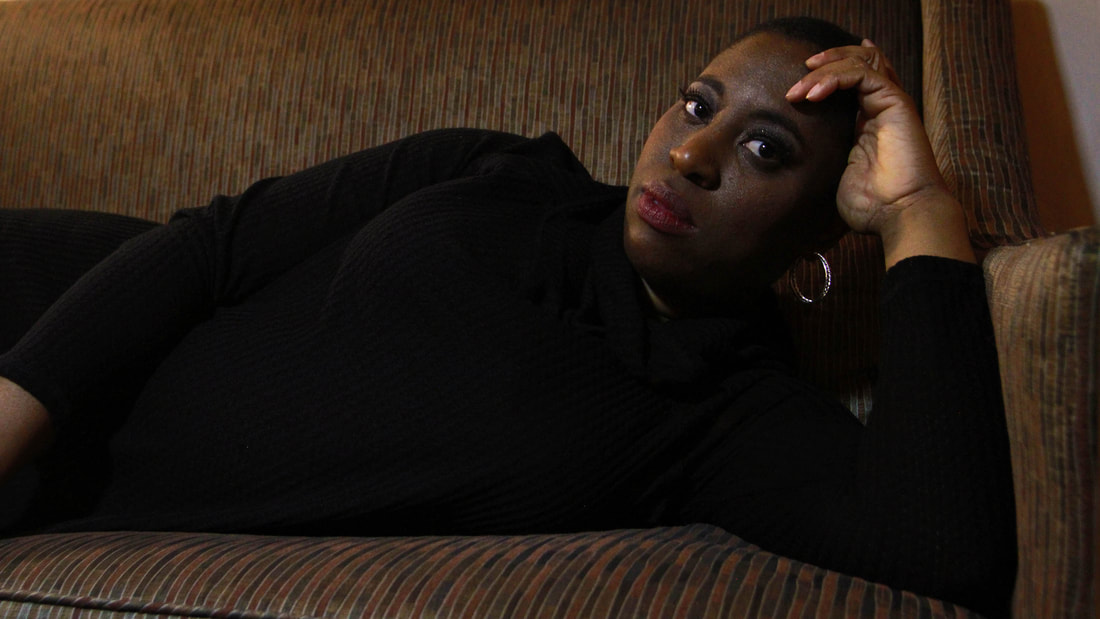
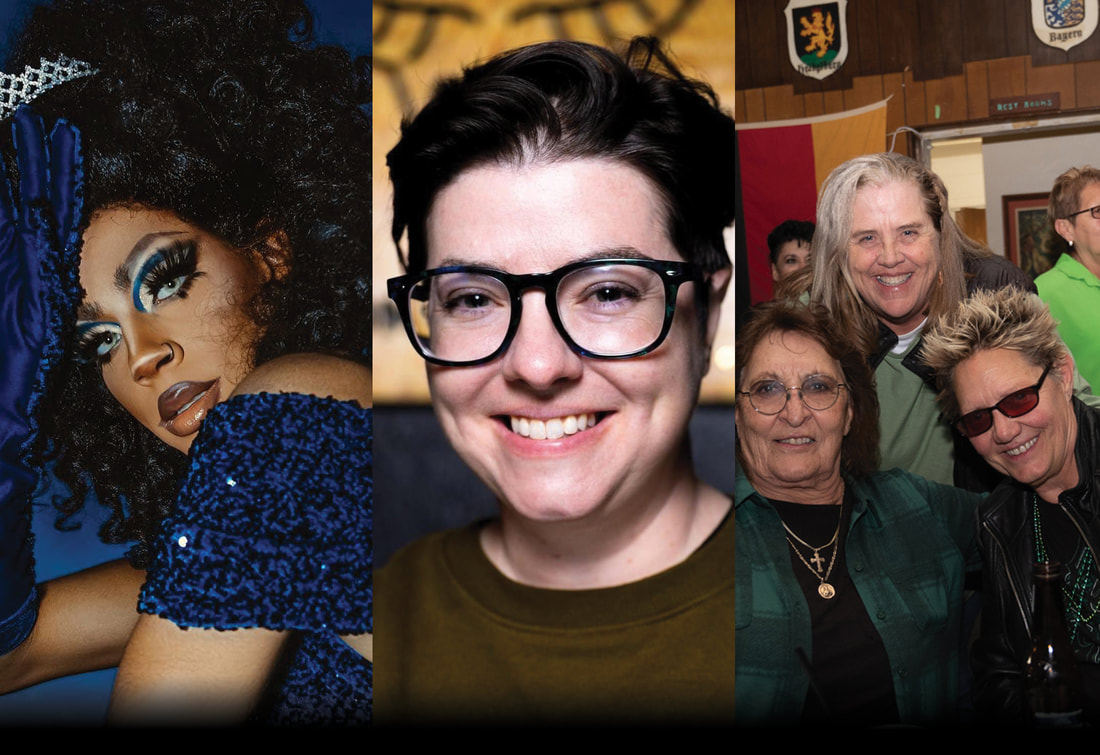
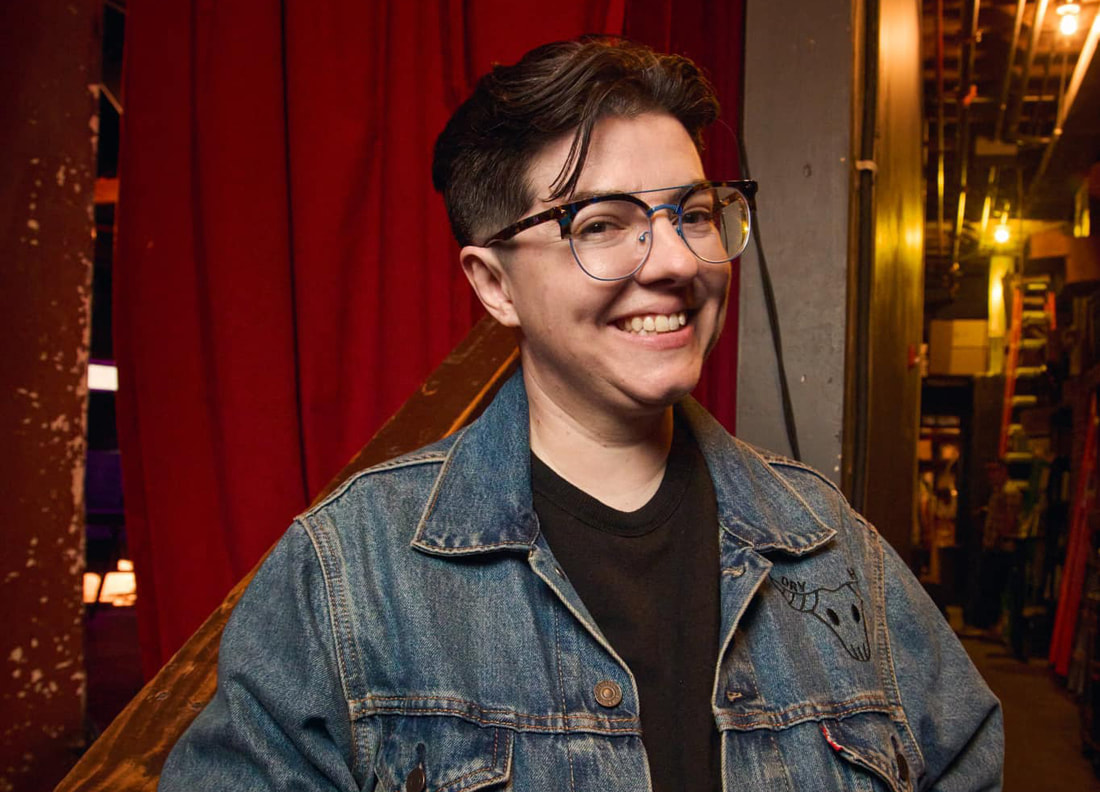
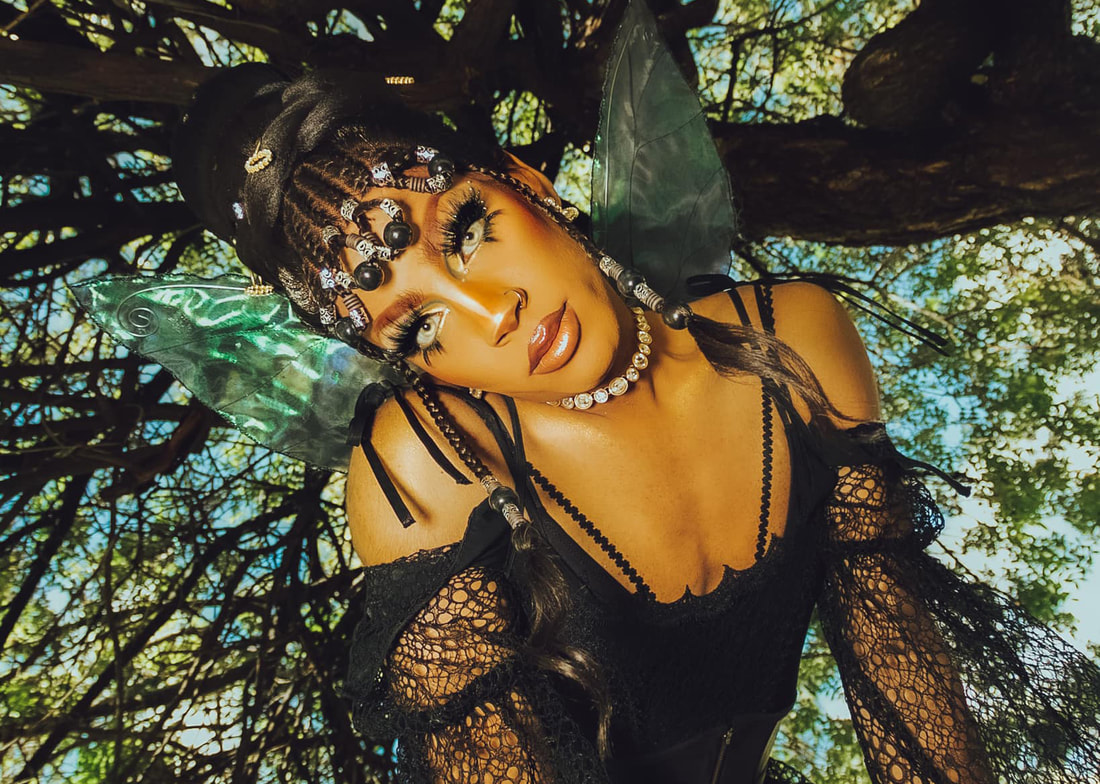
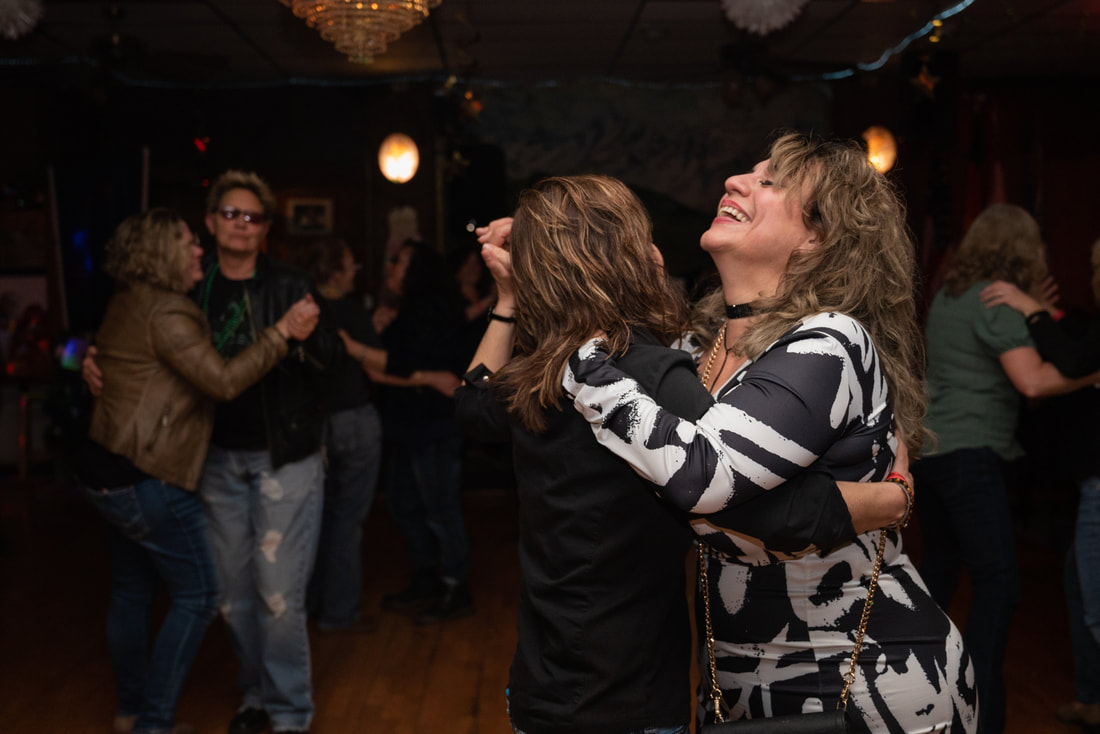
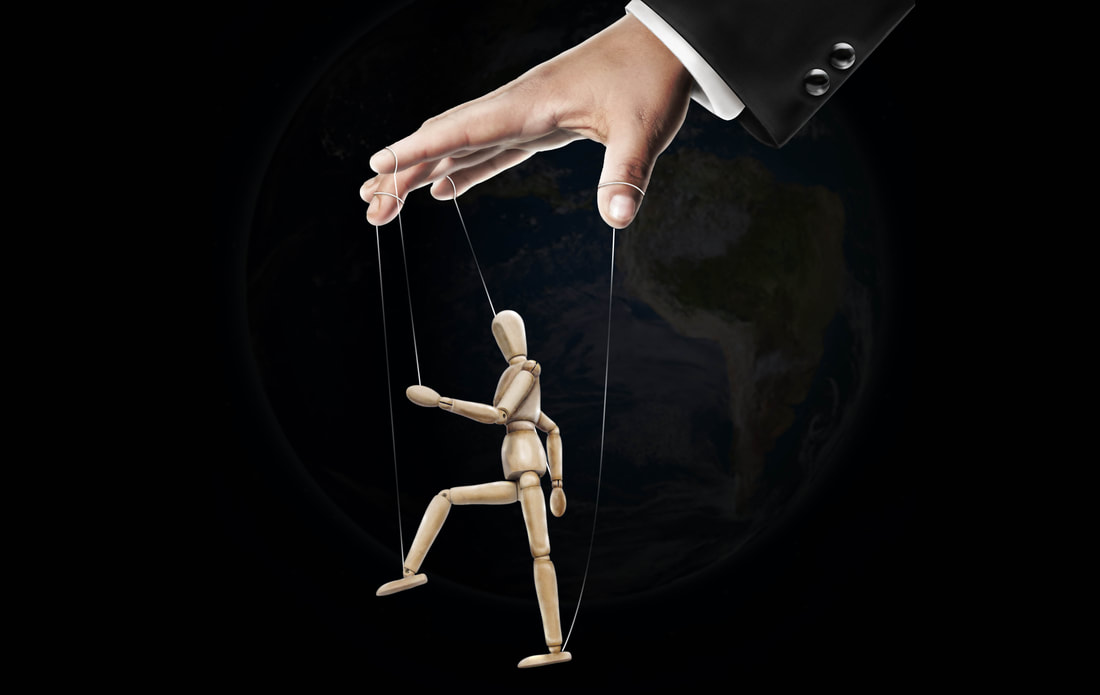
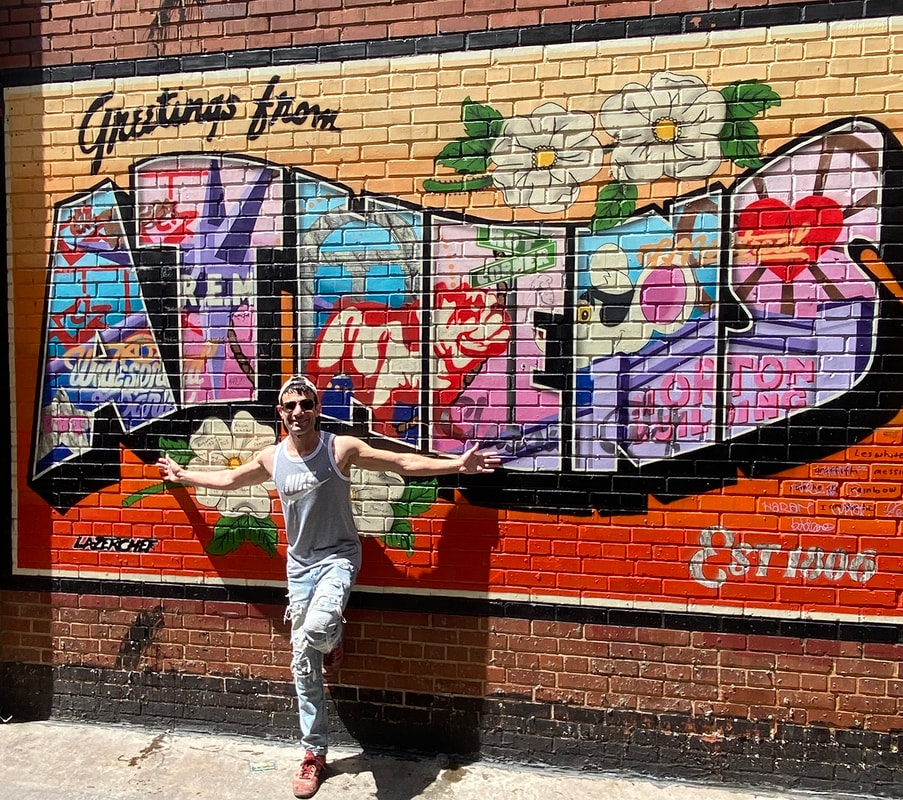

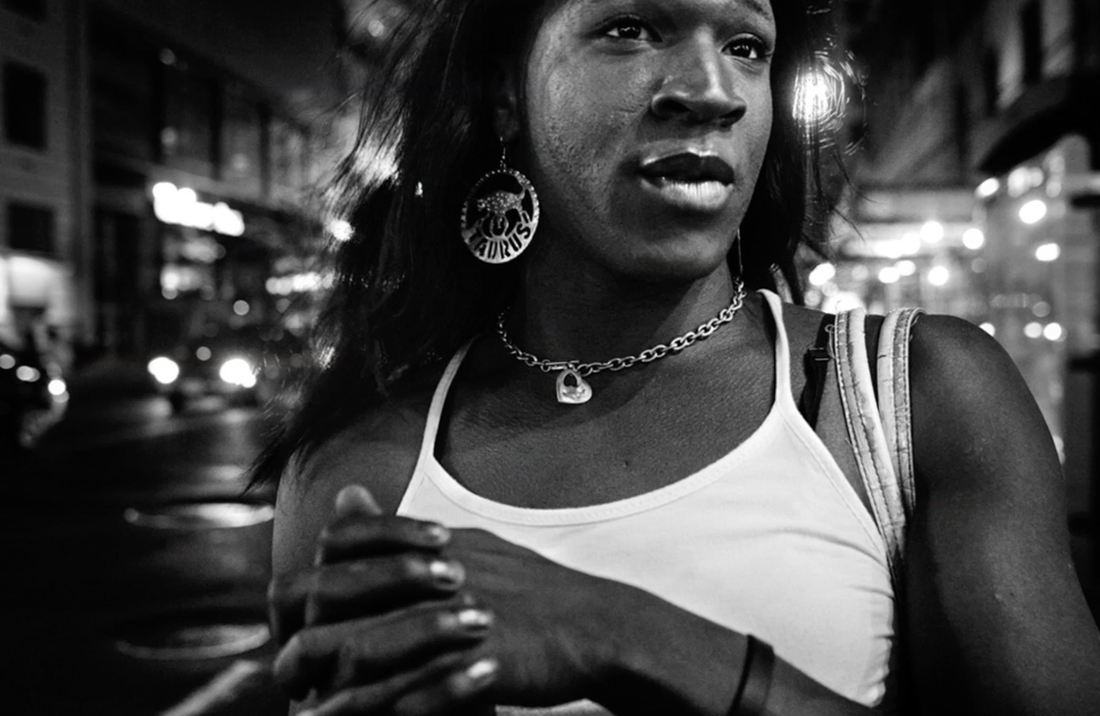
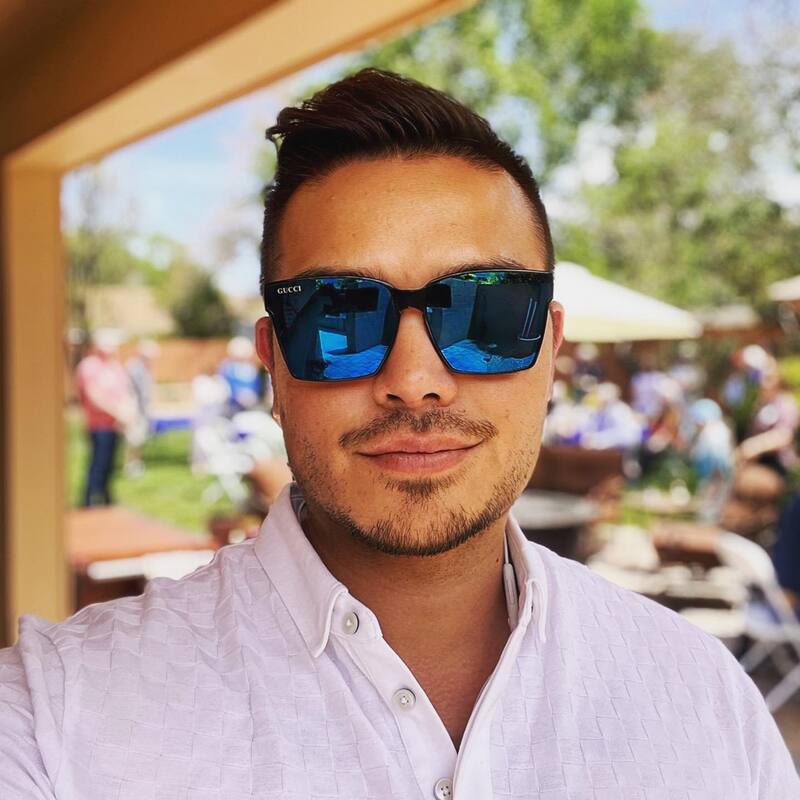
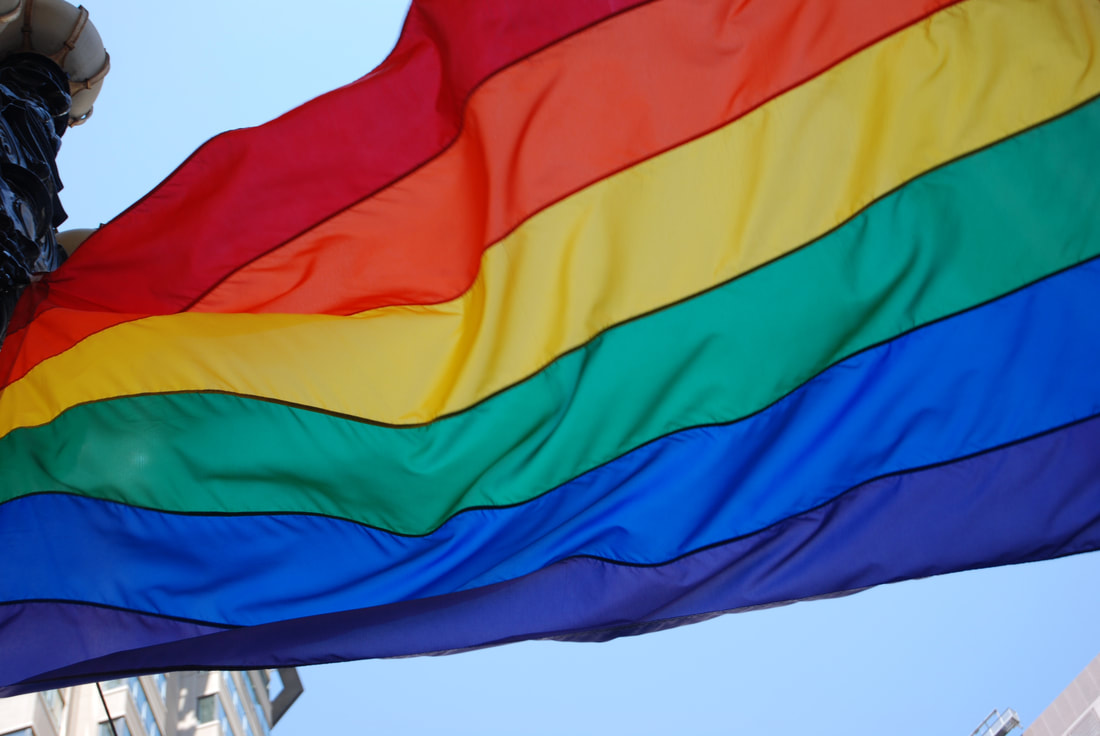
 RSS Feed
RSS Feed
